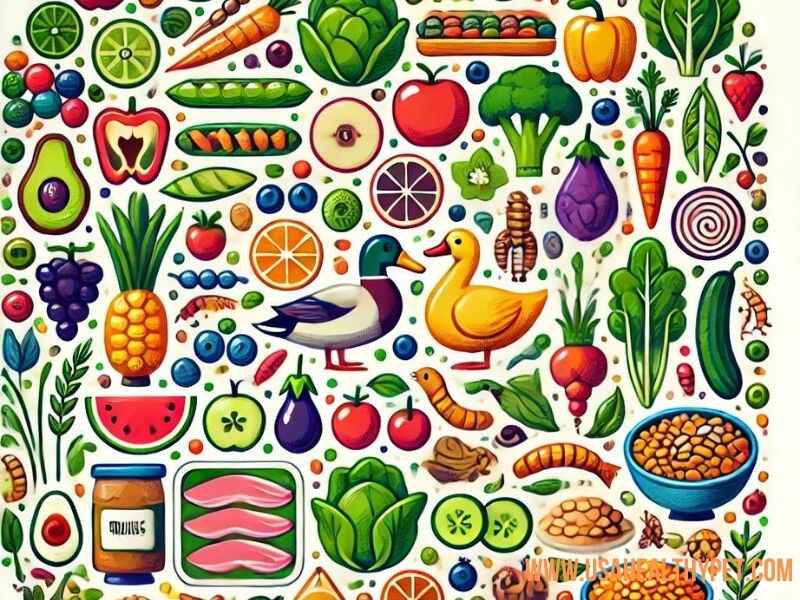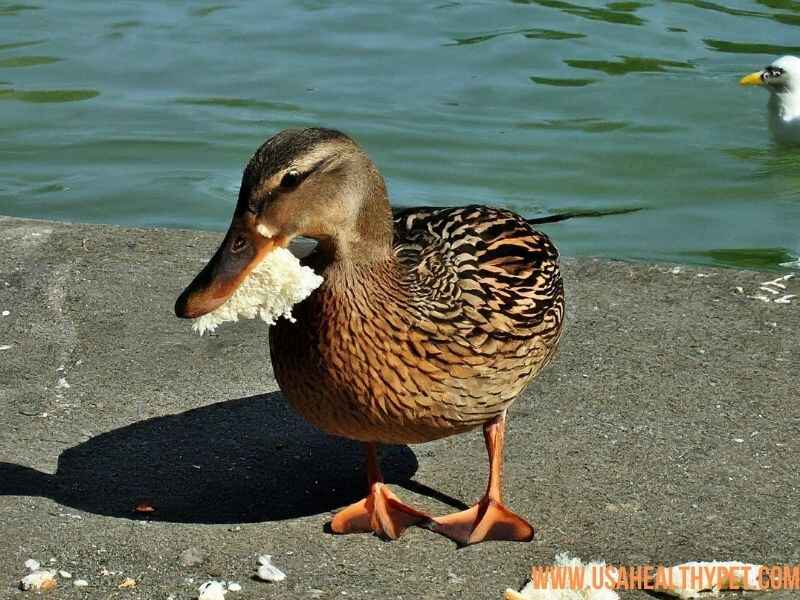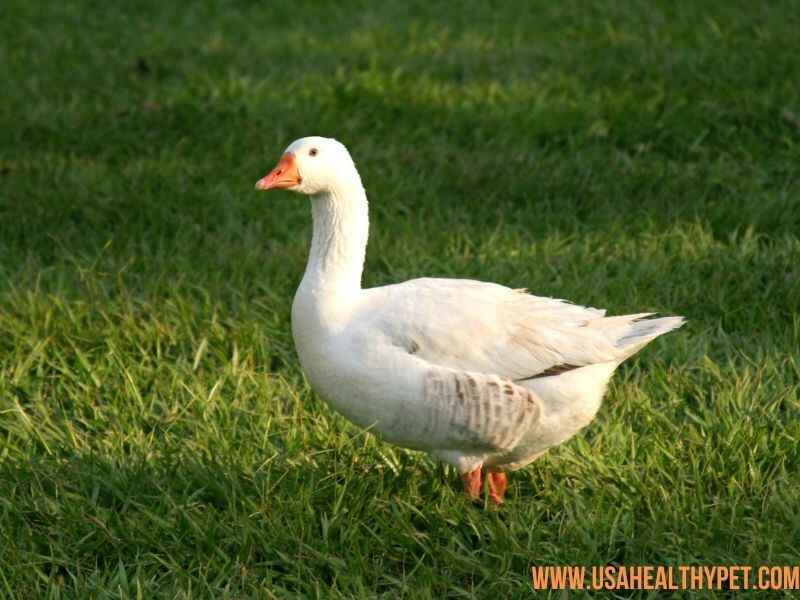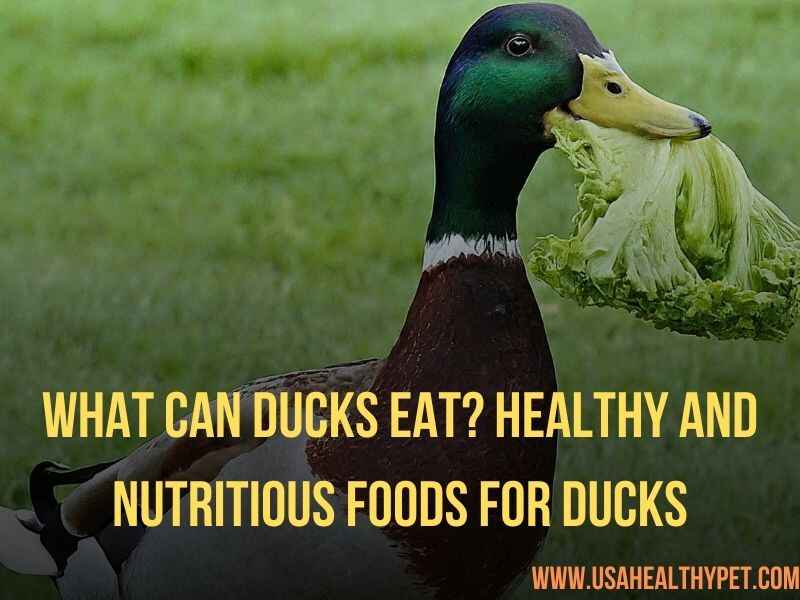Ducks are delightful creatures, whether you’re watching them at a local pond or raising them in your backyard. But what do they actually eat, and how can you make sure you’re giving them the right food?
This guide will help you understand what ducks can and should eat, the foods to avoid, and how to keep your ducks healthy and happy through proper nutrition.
Why Is It Important to Know What Ducks Can Eat?
Ducks, like any other animals, need a proper diet to stay healthy. Feeding them the wrong foods can lead to nutritional deficiencies, digestive problems, or even life-threatening conditions.
Plus, if you’re raising ducks, knowing what they should eat helps them grow strong, lay nutritious eggs, and stay happy.
According to Dr. Julie Burge, a certified avian veterinarian, “Ducks thrive on a diverse diet of grains, vegetables, and protein sources. Feeding them commercial duck feed ensures they get all the essential nutrients needed for healthy growth and egg production.”
What Can Ducks Eat? A General Overview

In short, ducks are omnivores. This means they can eat a variety of foods, both plant-based and animal-based.
Their natural diet in the wild consists of plants, small insects, and fish, but when it comes to feeding ducks—whether in a backyard or at the local pond—you want to aim for a balance of grains, vegetables, and protein.
Let’s break it down further!
The Best Natural Foods for Ducks
Ducks love a variety of fresh, natural foods that mirror what they would find in the wild. Here’s a look at some of the best options.
Vegetables
Just like us, ducks thrive on a healthy dose of veggies. They love leafy greens, and you can feed them things like:
- Lettuce (romaine is a favorite)
- Spinach
- Kale
- Peas
- Corn kernels (make sure they’re soft and not raw)
- Cucumbers (cut into small pieces)
Pro Tip: Chop veggies into small, bite-sized pieces to make it easier for them to eat and digest.
Fruits
Ducks enjoy fruits too, but moderation is key since fruits contain natural sugars. Great options include:
- Berries (strawberries, blueberries, and raspberries)
- Apples (remove seeds and chop them up)
- Grapes (cut in half to prevent choking)
- Melons (watermelon, cantaloupe—remove the seeds)
Grains and Seeds
Grains are a staple for ducks, providing essential nutrients and energy. Some good choices are:
- Cracked corn (a favorite treat)
- Oats (uncooked is best)
- Barley
- Rice (cooked or uncooked)
- Birdseed (unsalted, and ideally with no additives)
Protein Sources
For a well-rounded diet, ducks also need protein. You can offer them:
- Mealworms (dried or live)
- Small fish (like minnows)
- Scrambled eggs (surprisingly, they love this!)
If you’ve ever wondered if ducks like bugs, the answer is a resounding yes! Bugs like mealworms mimic their natural diet and help support their protein needs.

Can Ducks Eat Bread? (Spoiler: It’s Not a Great Idea)
Can ducks eat bread? It’s a common practice, but unfortunately, feeding ducks bread is like giving them junk food.
While it’s not immediately harmful, it provides little to no nutritional value and can lead to “angel wing”, a condition where ducks’ wings grow improperly, affecting their ability to fly.
The RSPB (Royal Society for the Protection of Birds), advises avoiding bread and instead feeding ducks natural foods such as peas, corn, and lettuce.
Safe Treats for Ducks
If you want to treat your ducks without compromising their health, opt for safe options like:
- Diced fruits (like berries and apples)
- Chopped greens (lettuce and spinach)
- Oats or cracked corn
Just remember: Treats should make up only about 10% of their diet, with the rest being nutrient-rich staple foods.
What Ducks Shouldn’t Eat
While ducks can eat a lot of things, there are some foods they should never have. Here’s a quick list of what to avoid:
- Bread (we’ve covered this!)
- Onions (can cause digestive issues)
- Avocados (toxic to ducks)
- Chocolate (just like dogs, it’s a no-go for ducks)
- Salty snacks (like chips or pretzels)
- Citrus fruits (such as oranges and lemons, which can upset their stomachs)
Feeding Ducks in the Wild vs. Backyard Ducks
When feeding ducks in the wild, aim for foods that closely resemble their natural diet, like cracked corn, peas, and leafy greens.
But if you’re raising ducks at home, you have a bit more flexibility in terms of grains and supplements, like pelleted duck feed, which provides balanced nutrition.

How Much Should You Feed Your Ducks?
Ducks generally need about 170-200 grams of food per day. However, this can vary depending on their size, breed, and whether they’re laying eggs.
As a rule of thumb, don’t overfeed—especially when offering treats—since this can lead to obesity and other health issues.
Creating a Balanced Diet for Your Ducks
So, how do you create a well-balanced diet? Make sure to:
- Provide variety—mix grains, veggies, and proteins.
- Use commercial feed as a base—especially for backyard ducks.
- Offer clean water at all times—ducks need it to help digest their food properly.
Signs of Overfeeding or Poor Nutrition in Ducks
Watch out for signs like:
- Weight gain (ducks can become overweight easily if overfed)
- Lethargy (could indicate nutritional deficiencies)
- Discolored feathers (often linked to poor diet)
If you notice any of these signs, it might be time to reevaluate their diet and consult with a vet if needed.
Research conducted by animal welfare organizations indicates that a poor diet can lead to deformities like angel wing, where the wing feathers grow improperly
Conclusion
Feeding ducks the right foods is essential for keeping them healthy and happy, whether they’re waddling around your backyard or enjoying a swim in the local pond.
By sticking to natural, nutrient-rich foods and avoiding harmful items like bread and avocados, you’ll help ensure they thrive.
Ready to start feeding ducks the right way? Next time you visit the park, leave the bread at home and bring along some peas or grains instead!
FAQs
1. Can ducks eat rice?
Yes, ducks can eat both cooked and uncooked rice. Just make sure it’s plain and unsalted.
2. Are grapes safe for ducks?
Yes, ducks can eat grapes, but it’s best to cut them in half to avoid choking.
3. What happens if ducks eat too much bread?
Feeding ducks too much bread can lead to malnutrition and a condition called “angel wing,” which affects their ability to fly.
4. Can I feed ducks birdseed?
Yes, birdseed is a great option for ducks, as long as it’s unsalted and free of additives.
5. How often should I give ducks treats?
Treats should only make up about 10% of a duck’s daily diet to ensure they’re getting enough nutrients from their main food sources.

Pingback: Can Ducks Eat Mango? A Complete Guide
Pingback: Can Ducks Eat Grapes? Expert Guide on Feeding Grapes
Pingback: Do Axolotls Have Teeth? A Complete Guide to Axolotl Teeth